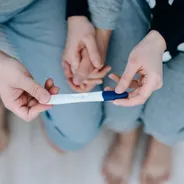Like everything else; no sexual encounter is borne equal. You can have great sex, terrible sex, mind-blowing sex and then boring sex, all with the same person, in the space of a week. Though this seems counter-intuitive, it's really not that surprising once you realise that there are many factors which can influence the quality of your romp.
While we all know that the number of alcoholic beverages you've consumed prior to the fact, as well as something like what you chose to eat for dinner, can affect you and your partner's enjoyment - a recent study has established an altogether more rudimentary factor in the quality of your love-making.
It is reported that one in three American adults do not get enough sleep. Sexual issues are also common, with as many as 45 per cent of women and 31 per cent of men being actively concerned about the state of their sex lives. Now, while these may seem to be distinct concerns - unrelated apart from the fact that they both take place in the bedroom - sex educator and researcher, Laurie Mintz, has claimed to the contrary.
Mintz, who wrote A Tired Woman’s Guide to Passionate Sex did so to help the alleged "countless women" who say that they are too exhausted to be interested in sex. She states that women are disproportionately affected by both sleep problems and by low sexual desire, claiming that the relationship between the two is "indisputable". Certainly, women are not only more likely than men to have sleep problems, but the most common sexual complaint that women bring to sex therapists is, indeed, low desire.
"Strikingly, being too tired for sex is the top reason that women give for their loss of desire," Mintz added.
According to a study referenced by Mintz, getting a good night's sleep can increase desire. The research found that the longer a woman slept, the more interested they were in having sex - just one extra hour of sleep led to a 14 per cent increase in the chances of a sexual encounter the next day. The same study also alleged that sleep was associated with greater genital arousal.
While this particular investigation was conducted with college-aged women, these concerns only become more prevalent in older women, in particular, those going through menopause. A follow-up investigation discovered that among menopausal women, sleep problems were directly linked to a decreased appetite for sexual activity.
And it doesn't just end there. "Interrelated sleep and sexual issues are also prevalent among mothers," Mintz continued. "Mothers of new babies are the least likely to get a good night’s sleep, mostly because they are caring for their baby during the night. However, ongoing sleep and sexual issues for mothers are often caused by having too much to do and the associated stress. Women, who are married with school-age children and working full time, are the most likely to report insomnia. Still, part-time working moms and moms who don’t work outside the home report problems with sleep as well."
Though lack of sleep and insomnia appear to affect women's sexual functioning more than men's, it's apparent that they can still suffer from issues in these areas. Research found that, among young healthy men, a loss of sleep culminated in decreased levels of testosterone - the hormone which is responsible for much of our sex drive. As Mintz corroborates, "Clearly, among men, lack of sleep results in diminished sexual functioning."
So, there you have it - you better rest up folks - lest you want your sex drive to suffer.












